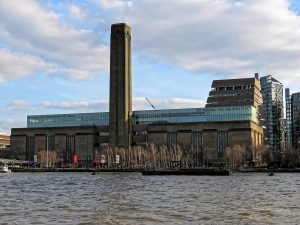
Owners of apartments overlooked by Tate Modern’s viewing platform have brought a claim in nuisance to stop visitors looking through their windows. The visitors in the viewing gallery frequently look into the Appellants’ flats and take photographs, occasionally even viewing the Respondents and their flats with binoculars. The Tate took steps to address the problem: they posted a notice on the southern gallery asking visitors to respect the privacy of their neighbours and also instructed security guards to stop photographers from taking pictures or filming.
The Respondents initially brought an injunction to the High Court to prevent members of the public from observing the flats from certain parts of the viewing gallery.
At the High Court…
The Judge concluded that there was no nuisance in the case due to the availability and reasonableness of measures to prevent the intrusion. Such measures included:
- Lowering blinds;
- privacy film;
- net curtains, and
- plants in front of the windows.
Although the Judge accepted that ‘overlooking’ falls within the scope of existing legal protections against neighbourly intrusion into the home, “the owners and occupiers of the flats had created their own additional sensitivity to the inward gaze.”
…and at the Court of Appeal…
Following an appeal of the High Court decision, the Court of Appeal moved to dismiss on the basis that ‘overlooking’ does not in fact fall within the tort of nuisance, as previously held by the High Court.
The owners of the flats mounted their final attempt to block the daily invasion of privacy into their homes. This issue has made it all the way to the Supreme Court.
…and now the Supreme Court
The highest court in the land is considering whether the Court of Appeal made an error when they failed to hold that:
- Private nuisance can provide a remedy against ‘viewing’ from neighbouring land; and
- Public viewing for the viewing gallery into the flats infringes the leaseholder’s rights under article 8 of the ECHR to respect for private lives and homes.
Potential Implications..
This has the potential to be a landmark decision regarding disputes of this kind. It could enshrine the right of tenants to a level of privacy not established before in common law. This would represent a significant upheaval of the law. Legal experts consider this to be a matter of considerable public interest. However, it also has the potential to open the floodgates to countless other cases brought by tenants who are frustrated by nosy neighbours peering into their properties. It would also place onerous limitations on planning permission with regard to new buildings.
As this decision is reserved, we have to wait and see what the decision is for now but with the two previous judgments being so distinct in their reasoning, it is extremely difficult to tell which way the Supreme Court decision will go.
Griffin Law is a dispute resolution firm comprising innovative, proactive, tenacious and commercially-minded lawyers. We pride ourselves on our close client relationships, which are uniquely enhanced by our transparent fee guarantee and a commitment to share the risks of litigation. If you have any specific questions regarding a property dispute, please email justice@griffin.law or call 01732 52 59 23.
GRIFFIN LAW – TRANSPARENT FEES. TENACIOUS LAWYERS. TRUSTED PARTNERS.
© Griffin Law Limited, 2022. All rights reserved.
Image: The Tate by Acabashi, CC BY-SA 4.0,





